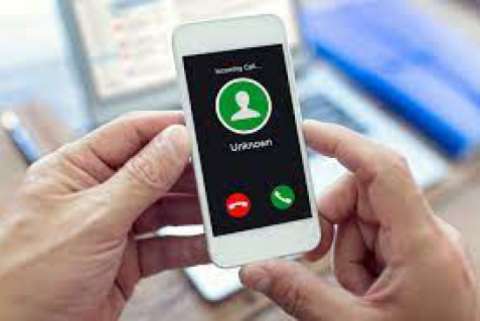In the digital age, the intersection of telecommunications regulations and the prevalence of robocalls in specific area codes, such as the 302 area code in Wilmington, Delaware, underscores the ongoing challenges faced by residents and businesses alike. This article explores the implications of the Telephone Consumer Protection Act (TCPA) concerning robocalls and spam calls within the 302 area code, shedding light on the efforts to curb these intrusive communications.
Wilmington, DE, encapsulated within the 302 area code, experiences its share of unwanted automated calls, ranging from telemarketing pitches to potentially fraudulent schemes. The TCPA, enacted in 1991, serves as a vital legal framework aimed at curbing the nuisance and invasion of privacy caused by robocalls. It establishes strict guidelines for businesses, telemarketers, and organizations, prescribing requirements for prior consent, maintaining "Do Not Call" lists, and restricting the use of automatic dialing systems.
Residents and businesses in the 302 area code, like any other region in the United States, can leverage the protections afforded by the TCPA to mitigate the impact of robocalls. Compliance with the TCPA involves obtaining explicit consent before initiating robocalls, promptly respecting "Do Not Call" requests, and ensuring secure practices to safeguard consumer information.
However, the persistent challenge of robocalls necessitates ongoing efforts to adapt regulatory frameworks and enforcement mechanisms. The Federal Communications Commission (FCC), tasked with overseeing and implementing the TCPA, recognizes the need for continuous evolution in response to the dynamic strategies employed by robocallers. The TRACED Act, signed into law in 2019, bolsters the FCC's ability to combat illegal robocalls by mandating the implementation of call authentication frameworks and increasing penalties for violators.
The 302 area code, emblematic of Wilmington's community, highlights the importance of a comprehensive approach in addressing the robocall issue. Beyond regulatory measures, consumer education plays a pivotal role. Wilmington residents can actively contribute to the fight against robocalls by understanding the signs of potential scams, staying informed about their rights under the TCPA, and reporting instances of robocalls to relevant authorities.
Technological solutions also play a crucial role in the battle against robocalls. Mobile carriers and app developers are continuously refining call-blocking features, enhancing caller authentication, and employing advanced spam detection algorithms. These innovations empower consumers with tools to filter and block unwanted automated communications effectively.
The challenges posed by robocalls and spam calls within the 302 area code in Wilmington, Delaware, persist despite regulatory efforts and technological advancements. While the TCPA serves as a critical tool in the fight against these intrusive communications, the dynamic nature of the telecommunications landscape requires ongoing vigilance and adaptation.
Wilmington residents, as part of the 302 area code, can actively participate in combating robocalls by staying informed about evolving tactics employed by robocallers. Recognizing the signs of potential scams, understanding the protections offered by the TCPA, and promptly reporting instances of robocalls to the appropriate channels contribute to a collective effort in addressing this issue at the grassroots level.
The TRACED Act, enacted to reinforce the FCC's ability to combat illegal robocalls, showcases the recognition at the legislative level that the fight against these communications requires strategic and comprehensive measures. By mandating the implementation of call authentication frameworks and increasing penalties for violators, the TRACED Act aims to create a more formidable deterrent against unlawful robocalling practices.
As Wilmington continues to thrive as a community, the collaborative efforts of residents, regulatory bodies, and technology developers play a crucial role in shaping a telecommunications landscape free from the constant intrusion of robocalls. The city's commitment to enhancing the quality of life for its residents aligns with the collective goal of creating a secure and connected environment that promotes responsible communication practices.
In parallel, technological innovations continue to evolve, offering promising solutions to the robocall problem. Enhanced call-blocking features, improved caller authentication mechanisms, and proactive spam detection algorithms contribute to empowering consumers with effective tools to filter out unwanted automated communications. As these technologies become more sophisticated, residents in the 302 area code can benefit from a more seamless and secure telecommunication experience.
Wilmington's community spirit, resilience, and commitment to progress position it well in the ongoing battle against robocalls. The 302 area code can serve as an example of how a community, supported by robust regulatory frameworks and cutting-edge technologies, can collectively combat the persistent challenge of unwanted automated communications. By fostering a culture of awareness, engagement, and technological adoption, Wilmington residents contribute to creating a telecommunication environment that aligns with the city's values and enhances the overall well-being of its residents.
As Wilmington strives to maintain its vibrant community spirit, efforts to combat robocalls align with the city's commitment to enhancing the quality of life for its residents. The 302 area code can benefit from the collective impact of regulatory, technological, and consumer-driven initiatives aimed at reducing the prevalence of robocalls and spam calls.
Conclusion
In conclusion, the intersection of the 302 area code in Wilmington, DE, and the TCPA underscores the ongoing battle against robocalls. Compliance with the TCPA, coupled with regulatory advancements, consumer education, and technological innovations, contributes to a multi-faceted approach in mitigating the impact of unwanted automated communications. By fostering a community-wide commitment to addressing this issue, Wilmington residents can enjoy the benefits of telecommunications without constant intrusion, promoting a more secure and connected environment.



